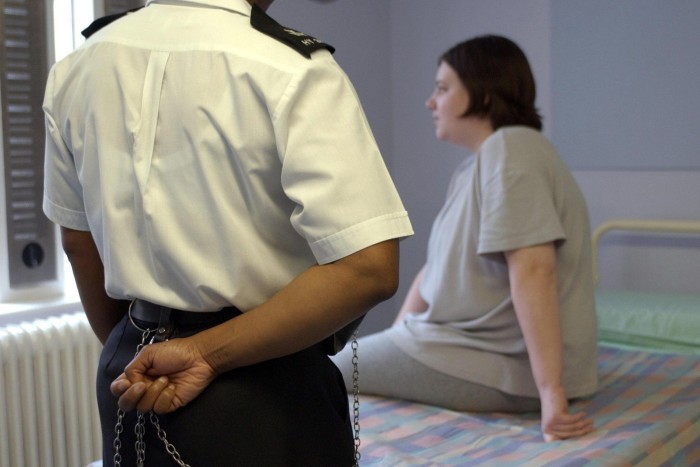
Unlock the Editor’s Digest for free
Roula Khalaf, Editor of the FT, selects her favourite stories in this weekly newsletter.
A new “women’s justice board” will be set up to cut the female prison population in England and Wales as part of a longer-term push to reduce the number of women’s jails, the justice secretary has said.
In a speech to the Labour party conference in Liverpool on Tuesday, Shabana Mahmood rejected then Conservative home secretary Michael Howard’s 1993 declaration that “prison works”, saying that “for women, prison isn’t working”.
Labour has said it inherited a criminal justice system at “breaking point” when it won the general election in July, and in her first 10 weeks in office, Mahmood has faced record jail overcrowding, which saw the prison estate come to within a few hundred places of capacity.
Almost 2,000 prisoners were released early this month, with several thousand more to be let out in October, under temporary emergency measures reducing the proportion of some custodial sentences from 50 per cent to 40 per cent.
Mahmood in her speech accused “guilty men in the last government” of bringing the prison system “to the point of disaster”.
The new women’s justice board would be tasked with providing early interventions to divert women away from the criminal justice system, improving community support and looking at specific problems affecting young women in custody, she said.

The self-harm rate among female inmates is eight times higher than among men, and women between the ages of 18 and 24 account for more than one-third of incidents despite constituting less than 10 per cent of the female prison population.
Some 3,453 women were in prison in England and Wales as of last Friday, according to Ministry of Justice figures, compared with 82,953 male inmates.
There are 123 jails in England and Wales, according to HM Prison Service, of which 12 in England are for women. Mahmood described them as “desperate places” that led female offenders into a life of crime rather than helping them rehabilitate.
About two-thirds of female offenders sentenced to prison did not commit a violent crime, and more than half of female offenders were the victims of domestic abuse, the department said in a release announcing Mahmood’s planned reforms.
The MoJ said women serving short custodial sentences were “significantly more likely to reoffend” than those serving non-custodial sentences.
The new body would be led by a minister and set up in the MoJ, the department added.
Pia Sinha, chief executive of the Prison Reform Trust charity, welcomed the creation of a separate oversight board for female offenders as a “historic moment for women’s justice”.
“Many women are primary carers for children, which means prison can have a devastating impact on those left behind on the outside as well as on the women themselves,” she said.
Sinha added that for the women’s justice board to be effective it “must provide a framework for better use of liaison and diversion services and community alternatives for women”.
Mahmood also pledged to make progress on Labour’s manifesto pledge to give all rape victims access to an independent legal advocate representing them “rather than a defendant or prosecutor”.
The change is aimed at cutting the number of victims who drop out of rape cases — 60 per cent at present — before they go to trial.